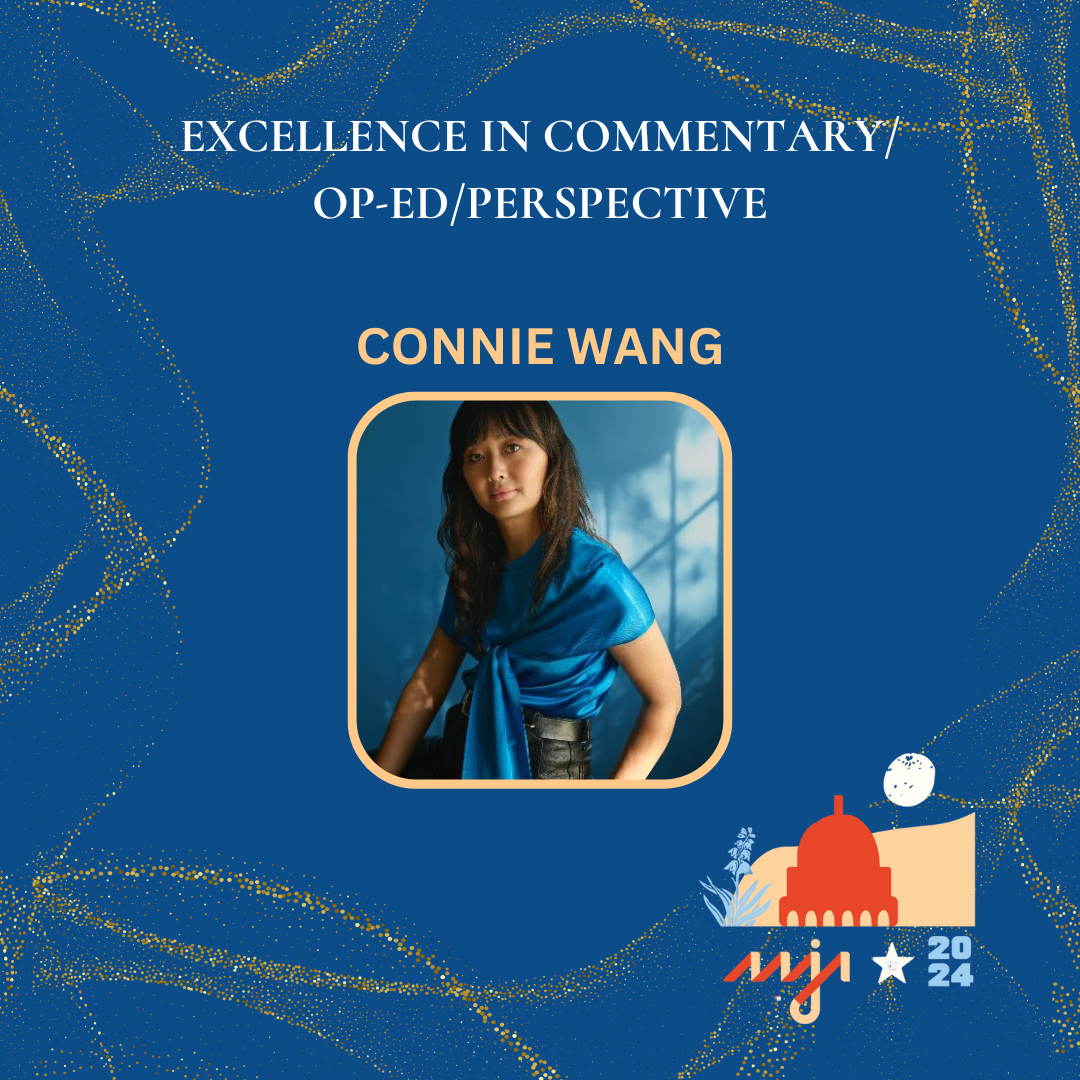Excellence in Commentary / Op-Ed / Perspective
Connie Wang; Other contributors: Alicia Wittmeyer; Jackie Bates; Jessia Ma; Tenzin Tsagong; Meeta Agrawal; Ana Becker; Vishakha Darbha; Kate Elazegui; Isaac Jones; Phoebe Lett; Madeleine Kruhly, “Generation Connie,” The New York Times
ABOUT THE WORK: “Generation Connie,” written by Connie Wang, with photographs by Connie Aramaki, is a New York Times Opinion multimedia essay about the many Asian American women who were named after the groundbreaking Chinese American news anchor Connie Chung.
In her piece, Ms. Wang set out to explore a simple question: Why were so many Asian American women in their 30s and early 40s named Connie? But once she began reporting, what started out as a piece about a quirky phenomenon became a much larger story about immigration, mother-daughter relationships, media representation, the struggles of one woman to make her way in the white-male-dominated industry of broadcast news and her outsize legacy and impact.
Ms. Chung participated in the essay — she was interviewed and photographed. The piece artfully builds to her meeting a group of 10 women who were named after her. She and the other Connies found the meeting emotional; one tearful moment captured on video is featured at the end of the essay.
In editor Alicia Wittmeyer’s skillful hands, one woman’s narrative became the story of a generation that deeply resonated with readers. Ace designers Jessia Ma and Ana Becker took the many elements of the project — the words; the photography, powered by Jackie Bates’s vision; the voices of the mothers explaining why they named their daughters after Ms. Chung, thanks to Phoebe Lett and Vishakha Darbha — and braided them together to create an absorbing experience. It was a passion-led collaboration that resulted in a project that seemed to take over the internet and conversation for a day.
Shortly after “Generation Connie” was published, “Connie Chung” was trending on Twitter and the positive sentiments poured in. NPR’s “Pop Culture Happy Hour” and Nieman Lab included the essay in their essential reading lists, and Slate had this praise: “The Times has now figured out the perfect identity story, the most granular possible I-can-relate material ever seen on the internet, the online-media equivalent of those keychains in souvenir shops.”
But the highest barometer of impact may have been in the hundreds of comments and letters we received from readers for whom Ms. Wang’s story was one that so many could finally see themselves — and their own families’ stories — in.
Connie Wang is a journalist and writer based in Los Angeles. She was born in Jinan, China, raised in Minnesota and went to school at UC Berkeley.
Meeta Agrawal is the editorial director for Opinion at The New York Times. She oversees Special Projects, including Sunday Opinion, and has oversight of Opinion’s graphics and photo teams.
Judges’ comments: "This multimedia masterpiece brings together poignant visuals and judicious interactivity, but the essay alone can captivate the reader. Musing on the origin of her common name, writer Connie Wang dives into a journey that is both intensely personal and universally familiar with themes that resonate with a wide audience: parents seeking better for their kids, the thrill of finding someone who looks like you who has made it, and the craving for ‘a sense of belonging that's otherwise in short supply.’ The impact of the story, which drew reflections from readers worldwide, is both notable and lasting.”
Honorable Mention: Yangyang Cheng, “The All-American Myth of the TikTok Spy,” WIRED
New or renewing members will be acknowledged at Gala and may not be reflected here.

